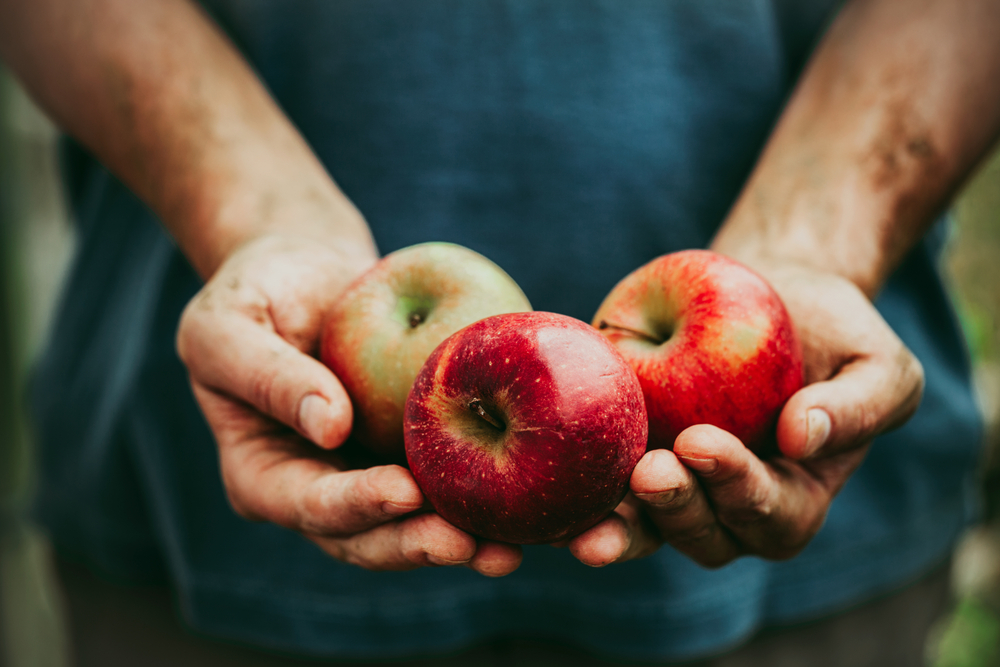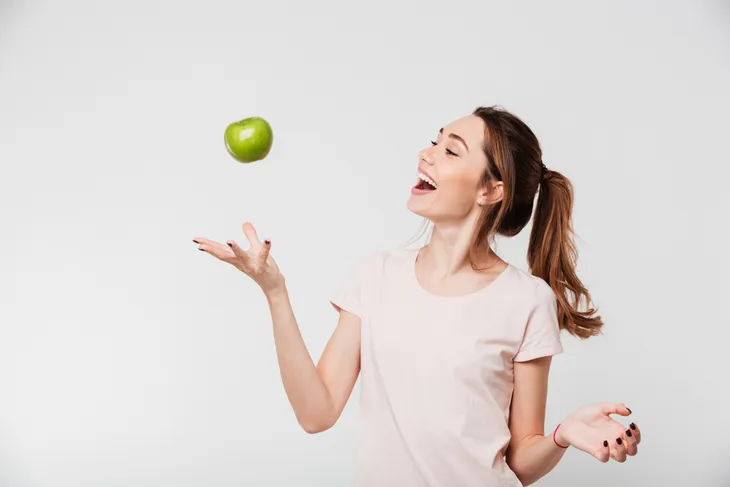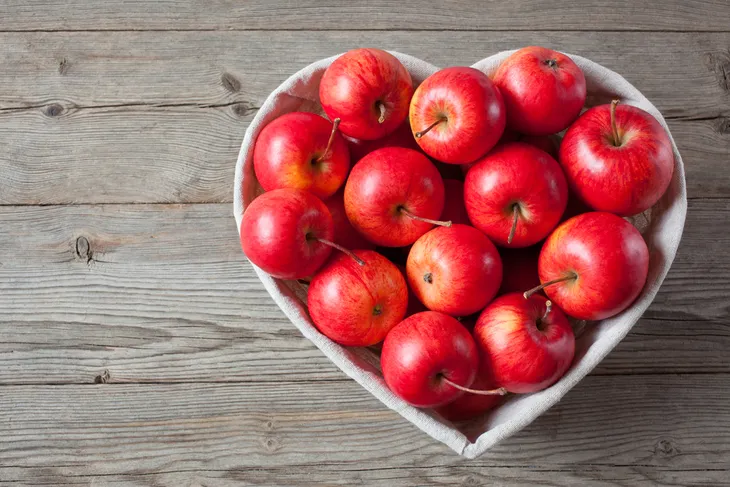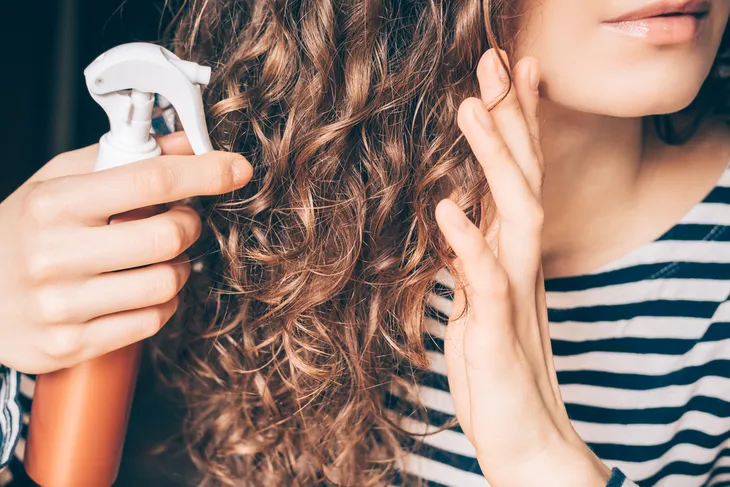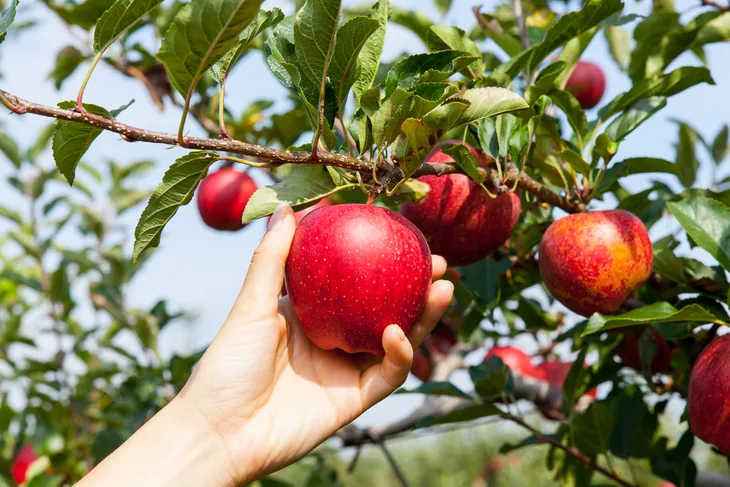Who knew that the old adage, “an apple a day keeps the doctor away”, was just the tipping point for the many miraculous uses we can apply apples for better health. After all, history suggests that the fruit has been used dating back to 6,500 BC for everything from eating to beautifying skin. If you’re still just eating apples, maybe it’s time to explore these six surprising and healthy alternative uses for “dem apples”…
Apples for Brain Boosting Health
It seems an apple a day keeps dementia at bay, according to a study published by the Journal of Alzheimer’s Disease. Researchers noted that mice who drank apple juice raised their production of the essential neurotransmitter acetylcholine, which boosted memory among mice with Alzheimer’s-like symptoms.
A secondary study from 2006, published by the journal, Experimental Biology and Medicine, found that quercetin (an antioxidants very abundant in apples) lowered cell death caused by the inflammation of neurons and oxidation.
Quickly Ripen Other Produce
I always try to buy very green bananas because they seem to ripen too quickly. However, that leaves me banana-less if I want to take one to work the next day. Apples to the rescue…
Ripe apples emit a fast-ripening ethylene gas, which means you can pop one in a brown paper bag with your next day’s banana or hard-as-a-rock avocado so you’re guacamole ready for dinner guests. Note: this won’t work on citrus fruits or pineapples.
Shorten Migraine Duration
Good smelling news for migraine sufferers! Research reported in Prevention notes that the scent of green apples can reduce muscle contractions in the head and neck, soothing anxiety and migraine pain. (Here are some more Foods to Prevent Migraines).
So if you feel a migraine in your near future, cut up a crisp, juicy green apple and inhale the scent. You don’t even have to eat the fruit, according to a study from Chicago’s Smell & Taste Treatment and Research Foundation, simply sniffing a green apple scented candle should do the trick.
Banish Oily Locks
Apple cider vinegar has been long touted as a dietary wonder. For instance, Reader’s Digest credits the elixir with everything from curing hiccups to soothing intestinal spasms, thanks to the pectin within.
However, used topically on your hair, apple cider vinegar also combats oil and flaky dandruff. Simply combine a 1/4 cup of apple cider vinegar with 1/4 cup water in a spray bottle and spritz directly on the scalp. Wrap hair and let sit for 15-minutes followed by washing hair as normal. It turns out the acidity of the apple cider vinegar transforms the pH of the scalp, reducing oily residue and preventing yeast so dandruff can grow.
Apples Help Ease Allergies
When it comes to the annoying, sniffly, and sneezy symptoms of seasonal allergies apples are considered among the best natural antihistamines. According to research from Healthline, apples contain a very powerful antioxidant plant compound, known as quercetin, which naturally combats the secretion of histamine.
If you suffer from allergies, you’re well aware of the evils of histamine, a chemical that triggers allergic reactions in the body. Studies, including one published by the journal, Thorax, notes that males who consumed 5 plus apples per week significantly increased lung function and reduced inflammatory airway response.
